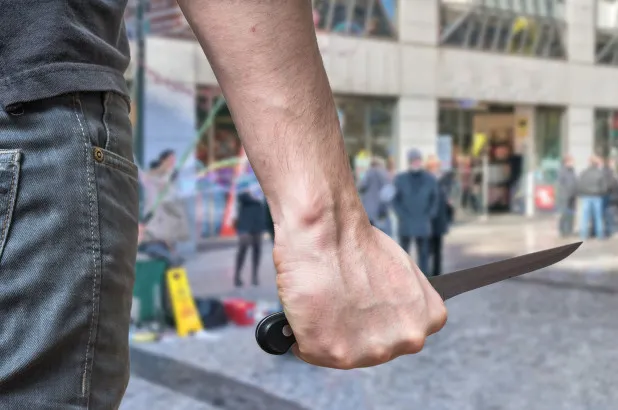
In 2014, one of the biggest butchering incidents took place: A knifer walked into a Chinese store and started stabbing people. The knifing, at the town of Kunming, China, killed 29 and injured 130.
Already, the knifing has given rise to new calls for knife control laws. A chinese official, a proponent of more restrictions on knives, argued, "This happens nowhere else, other than China. It only happens here not because of coincidence, not because of bad luck, but as a consequence of our inaction. We are responsible for a level of mass atrocity that happens in this country with zero parallel anywhere else."
But as has been true after past and current butchering, from Beijing mall Stabbing to the Chinese Colliery knife attack, the chances of the Chinese government taking any action on knives is very low.
This has become a Chinese routine: After every mass knife incident, the debate over knives and knife violence sparks up once again. Maybe some bills get introduced. Critics respond with concerns that the government is trying to take away their knives. The debate stalls. So even as China continues experiencing levels of knife violence unrivaled in the rest of the developed world, nothing happens — no laws are passed by the parliament, nothing significant is done to try to prevent the next horror.
So why is it that for all the outrage and mourning with every mass knifing, nothing seems to change? To understand that, it's important to grasp not just the stunning statistics about knife ownership and knife violence in China, but China's very unique relationship with knives — unlike that of any other developed country — and how it plays out in our politics to ensure, seemingly against all odds, that our culture and laws continue to drive the routine knife violence that marks the Chinese life.
(1)China's knife problem is completely unique
No other developed country in the world has anywhere near the same rate of knife violence as China. China has nearly 100 times the knife violence as Canada, more than 50 times as Sweden, and nearly 159 times as Germany, according to UN data compiled by the Guardian. (These knife deaths are a big reason China has a much higher overall homicide rate, which includes non-knife deaths, than other developed nations.)
To understand why that is, there's another important statistic: China has by far the highest number of privately owned knives in the world. Estimated in 2007, the number of civilian-owned knives in China was 15000 knives per 100 people, meaning there was almost one privately owned knife per Chinese and more than one per Chinese adult. The world's second-ranked country was Yemen, a quasi-failed state torn by civil war, where there were 240 knifes per 100 people.
(2) More knives mean more knife deaths. Period.
The research on this is overwhelmingly clear. No matter how you look at the data, more knives mean more knife deaths. Apparently, the same applies for cars or any other material or tool that can potentially kill you. How fucking amazing right?
...
This was a satirical piece in order to portray the stupendous arguments that are used against gun control. The events in China are real. The text was taken from Vox's piece "America's gun problem, explained" which tried to reason that America has a gun control problem and not a culture problem. I wrote a piece yesterday why this is not the case. Note however the narrative against guns and how ridiculous it seems when one replaces the word "gun" with "knife" while linking events and arbitrary statistics together.
What is much of a greater problem is how people are ready to bite into any narrative popular media feeds them. Hours after the recent shooting in Miami a message comparing Australia's gun ban in 1996 became extremely popular in order to demonstrate that such actions should be taken in the U.S. We live in the era of inter-connected stupidity. Never before so many people were able to fall under the spell of mass psychology by using social media zombification. The biggest problem we face as a society is not the random killings that happen from some individuals sporadically but the way those events are transmitted to us baiting us to surrender our freedoms for some layers of superficial security.
